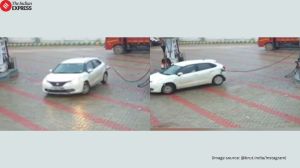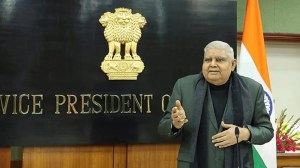BMC to team up with waste-picker bodies for dry waste segregation at Deonar, refuse stations; floats Expression of Interest
Move will benefit over 100 waste pickers working in informal sector
 The waste pickers will also be allowed to sell the segregated material to scrapyards and recyclers (Archives)
The waste pickers will also be allowed to sell the segregated material to scrapyards and recyclers (Archives)The Brihanmumbai Municipal Corporation (BMC) is set to rope in waste-picker organisations to carry out segregation of dry waste at the Deonar dumping ground and its four refuse transfer stations at Mahalaxmi, Kurla, Gorai and Versova. Eyeing to boost recycling, informal waste pickers will be tasked with segregating the city’s non-biodegradable waste, stacking them as per civic rulebook and, eventually, transferring the segregated waste to recyclers.
In what will benefit over 100 waste pickers working in the informal sector, the civic body will station 50 waste pickers to segregate dry waste at the Deonar dumping ground while 25 workers will be involved with recovering dry waste from each of the four refuse stations. According to officials, dry waste encompassing plastic, e-waste, glass, metal, paper etc. will be segregated with the eventual objective of recycling. Meanwhile, the waste pickers will also be allowed to sell the segregated material to scrapyards and recyclers.
To implement the model, the BMC recently floated an Express of Interest (EOI) inviting registered waste picker organisations — having at least 100 registered waste pickers — to recover non-compostable solid municipal waste on a non-commercial basis, with one organisation slated to be deployed across the four refuse transfer stations and the Deonar facility each.
So far, officials said the civic body has received EOIs from nearly five to six organisations. In its EOI, the BMC has said the external waste picker organisations have been brought on board to segregate the daily waste collected at the facilities in a bid to reduce the volume of total solid waste transferred at the eventual disposal site.
Currently, the Deonar dumping ground receives nearly 600-700 metric tonnes of municipal solid waste daily while the four refuse transfer stations cater to nearly 1,900 metric tonnes of waste daily. At these stations, solid waste collected from nearby wards are unloaded to ensure optimum clearance of the daily waste and use of small, refuse vehicles. Of the four, the refuse transfer stations at Mahalaxmi and Kurla receive 650 metric tonnes of waste daily, the Gorai refuse transfer station treats 400 metric tonnes of waste while the Versova lagoon refuse transfer station receives 300 metric tonnes waste each day.
Speaking to The Indian Express, a civic official said that the integration of waste organisations with the BMC will aid in giving a fresh lease of life to recyclable products while also providing a means of livelihood to the workers. “The waste pickers from the appointed organisations will segregate the waste so that the recyclable material can be extracted and brought back to the life cycle. Meanwhile, the other objects can be sold by the waste pickers at scrapyards, allowing them to earn some money,” an official said.
The decision has been charted in line with the norms laid down in SWM rules of 2016 which empower local authorities or panchayats to establish a system to recognise organisations of waste pickers or informal collectors and promote establishment of a system, which integrates and facilitates the participation in solid waste management including door to door collection of waste.
Cumulatively, meanwhile, data furnished by the BMC shows that the city generates an average of 6,300 metric tonnes of waste per day of which approximately 4,500-5,500 metric tonnes is taken to the Kanjurmarg dumping yard, while rest is dumped at the Deonar landfill.












